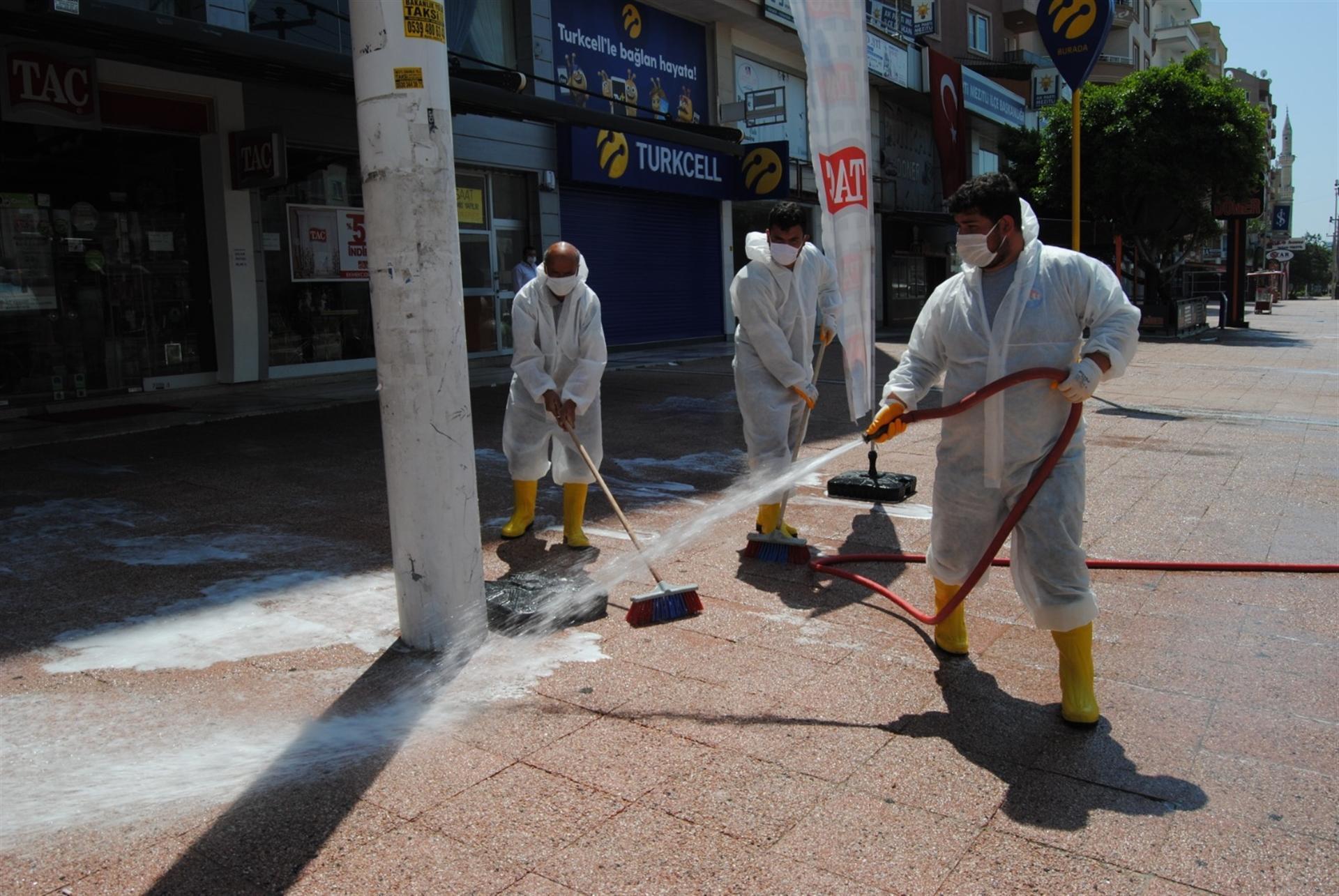Next two weeks crucial in virus fight: Scientists
Fulya Soybaş - ISTANBUL

As some countries are preparing to ease curbs that had been introduced to slow the spread of the coronavirus pandemic, people in Turkey are seeking an answer to the question as to when life in the nation could start to return to normal.
Members of the country’s Science Board are stressing that cases probably have not yet peaked, and the next 15 days will be crucial in the fight against the outbreak.
The number of confirmed cases and death rates are relatively lower compared with other nations and this is an advantage, said Professor Tevfik Özlü from the board, adding, “however, we are at a very fragile moment. We have not yet taken the pandemic under control.”
He noted that the virus cases are still rising.
“We cannot say we have seen the peak. We need at least 15 more days to make this conclusion,” Özlü told daily Hürriyet.
“When the decline in cases shows some consistency then we can talk about the outbreak plateauing.”
He warned that restrictions should remain in place even after the peak.
He noted that some European countries, such as Germany and Norway, imposed lockdowns one-and-a-half months before Turkey did and the cases might have plateaued there, but Turkey is just in its fifth week into the fight against the virus.
“There are expectations that the peak could be reached within two weeks. This is not a definite deadline. All depends on how the public behaves. We have to strictly heed the rules,” Özlü added.
Professor Serap Şimşek of the Science Board agrees that there is a slight decline in the number of confirmed virus cases and that it does not necessarily mean the outbreak has plateaued.
She also shares the view that the next two to three weeks will be a turning point in the struggle to take the spread of COVID-19 under control.
“Any sort of complacency on the public side will delay the arrival of the peak and its consequences could be grave. Risks remain.”
Şimşek reiterates the importance of social distancing and self-isolation.
According to Şİmşek, the government’s decision to impose a four-day curfew this week will definitely help with those efforts.
The less contact between people the earlier the peak arrives, she noted.
Professor Recep Öztürk, another scientist from the board, said that Turkey is moving towards the peak, but the timing solely depends on how strictly people heed rules designed to stop the spread of the virus.
“If the current process continues, we may reach that point within 15 to 20 days. I strongly underline this: I say this by looking at the current data,” Öztürk added.
He warned that the pandemic will not disappear after the peak has been reached in Turkey.
“We will take a deep sigh of relief only when a vaccine is developed and when the pandemic ceases to exist across the globe.”
Meanwhile, a study by the Economic Policy Research Foundation of Turkey predicts that the outbreak may peak on May 3 with a little more than 100,000 cases.
At that point the number of patients who require treatment in intensive care units could be 3,600.
The study suggests that restrictions could be gradually eased after this point and the normalization process may start in mid-June.
















